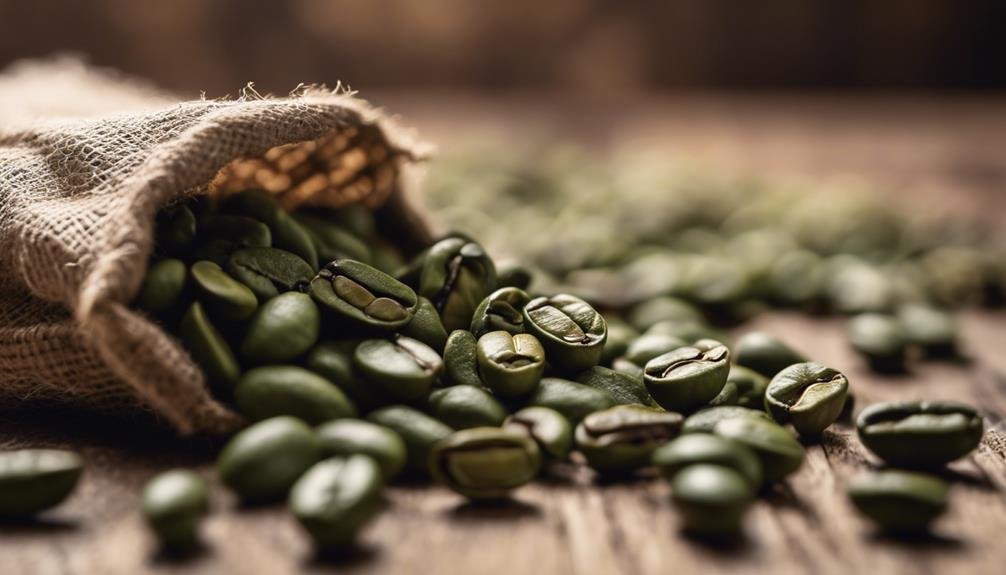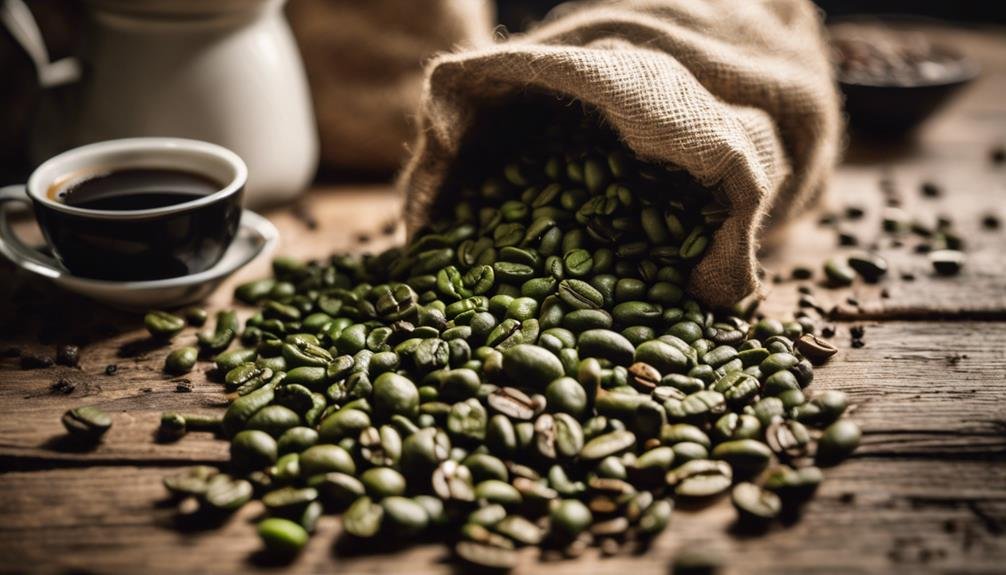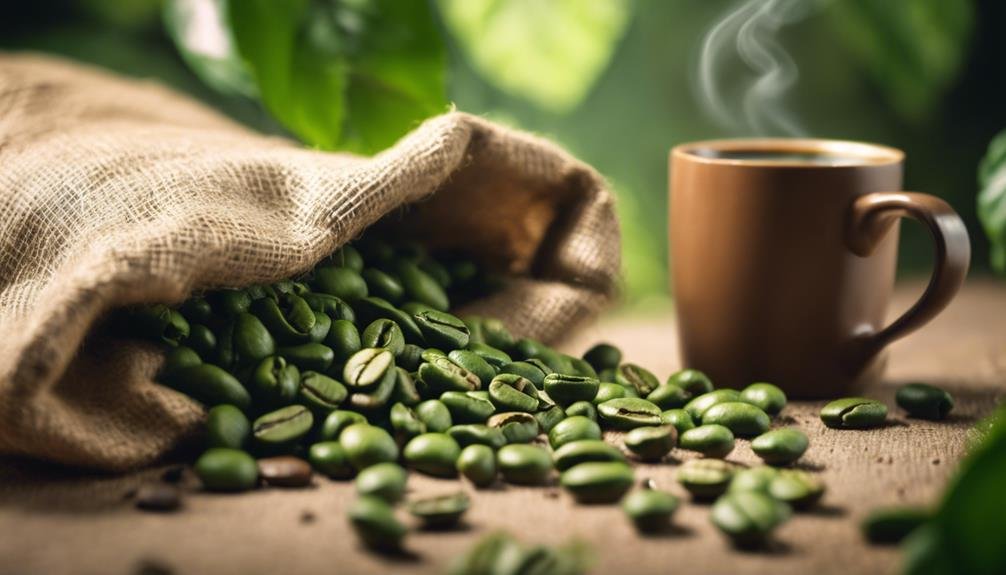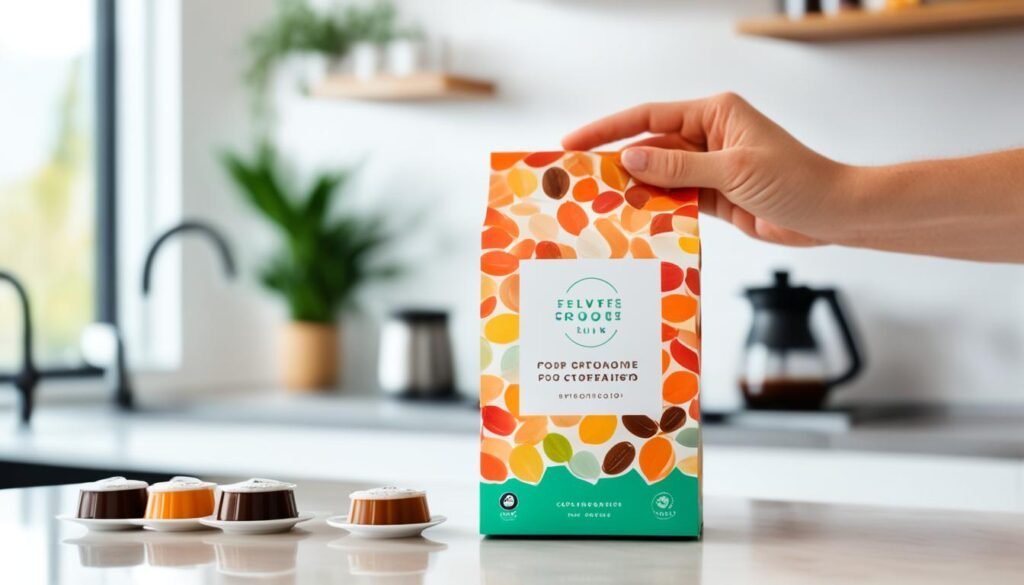Raw coffee beans can provide a strong caffeine boost as they are unroasted and contain higher levels of caffeine compared to brewed coffee. A single serving of raw beans contains around 200 mg of caffeine, whereas a cup of brewed coffee has about 95 mg.
It is important to note that consuming 20-30 raw beans a day falls within the FDA's recommended caffeine intake limit. Going over this amount can result in negative health effects such as increased heart rate, acid reflux, and difficulty sleeping.
While raw coffee beans are packed with antioxidants and can offer significant energy, it is crucial to consume them in moderation to avoid adverse effects.
For a better understanding of the health implications and benefits of raw coffee beans, keep reading.
Understanding Raw Coffee Beans

Raw coffee beans, also known as green coffee beans, are the unroasted seeds obtained from coffee cherries. They differ from roasted coffee beans in terms of flavor and nutritional value.
While raw coffee beans are technically edible, their tough texture and earthy taste may not suit everyone's palate. Despite this, they pack a potent acidic kick due to being unroasted.
Eating raw coffee beans is generally safe, but their taste and texture may not be enjoyable for all. Many individuals opt for green coffee extract or chocolate-coated beans as tastier alternatives. These variations maintain high levels of antioxidants and caffeine, providing a rich source of these beneficial compounds that can sometimes diminish during roasting.
Caffeine in Raw Beans Vs. Brewed Coffee
When comparing caffeine content, raw coffee beans contain a higher concentration of caffeine compared to brewed coffee. This is because the brewing process dilutes the caffeine present in the beans. In contrast, consuming raw beans allows you to experience the full range of caffeine and antioxidants they offer. Here is a breakdown to illustrate the difference:
| Quantity | Raw Coffee Beans | Brewed Coffee |
|---|---|---|
| 1 Serving (8 oz) | 200 mg caffeine | 95 mg caffeine |
| 1 Coffee Bean | 6 mg caffeine | N/A |
| 1 Cup of Coffee | N/A | 95 mg caffeine |
For those looking for a more potent caffeine boost, raw coffee beans provide a stronger option, connecting you to the rich traditions and bold flavors of coffee culture.
Daily Caffeine Limits

Understanding the limits of daily caffeine intake is crucial to prevent the negative effects of consuming too much caffeine.
The FDA suggests keeping caffeine consumption under 400 mg per day, which is about equivalent to four cups of brewed coffee.
For those who prefer raw coffee beans for their caffeine boost, it's important to exercise moderation. Due to their high caffeine concentration, it's best not to consume more than 20-30 raw coffee beans in a day to avoid symptoms of caffeine overdose like anxiety, restlessness, and trouble sleeping.
Health Impacts of Overconsumption
Consuming an excessive amount of caffeine from raw coffee beans can have significant negative impacts on health, highlighting the importance of moderation. High intake of caffeine can lead to various adverse effects on both physical and mental well-being. These effects include increased heart rates, elevated blood pressure, gastrointestinal discomfort such as heartburn and acid reflux, and potential exacerbation of anxiety, insomnia, and restlessness.
It is crucial to be aware of these potential health risks in order to maintain a balanced and healthy lifestyle. By sticking to the recommended limits when consuming raw coffee beans, individuals can enjoy the benefits without compromising their overall well-being.
Benefits and Cautions

Consuming raw coffee beans can offer several benefits, but it's essential to be cautious to avoid potential health risks. Raw coffee beans are rich in antioxidants, which can be beneficial for overall health. They also provide a strong caffeine boost, serving as an effective energy enhancer.
However, the concentrated caffeine content can lead to adverse effects if consumed excessively, such as anxiety, restlessness, and digestive problems. It's advisable to limit intake to 20-30 beans per day to stay within recommended caffeine limits set by the FDA.
Moderation is key to reaping the advantages of raw coffee beans while reducing potential health hazards, ensuring a balanced approach to consumption.
Conclusion
Including raw coffee beans in your diet can provide a concentrated dose of caffeine and antioxidants.
Unroasted arabica beans, in particular, contain around 150 mg of antioxidants, which are typically reduced during the roasting process.
It's important to consume raw coffee beans in moderation due to their high caffeine content, which may lead to negative effects like anxiety and digestive issues.
These beans can be enjoyed as a unique snack, especially when paired with chocolate, offering a different way to satisfy your caffeine cravings while being mindful of potential health implications.












